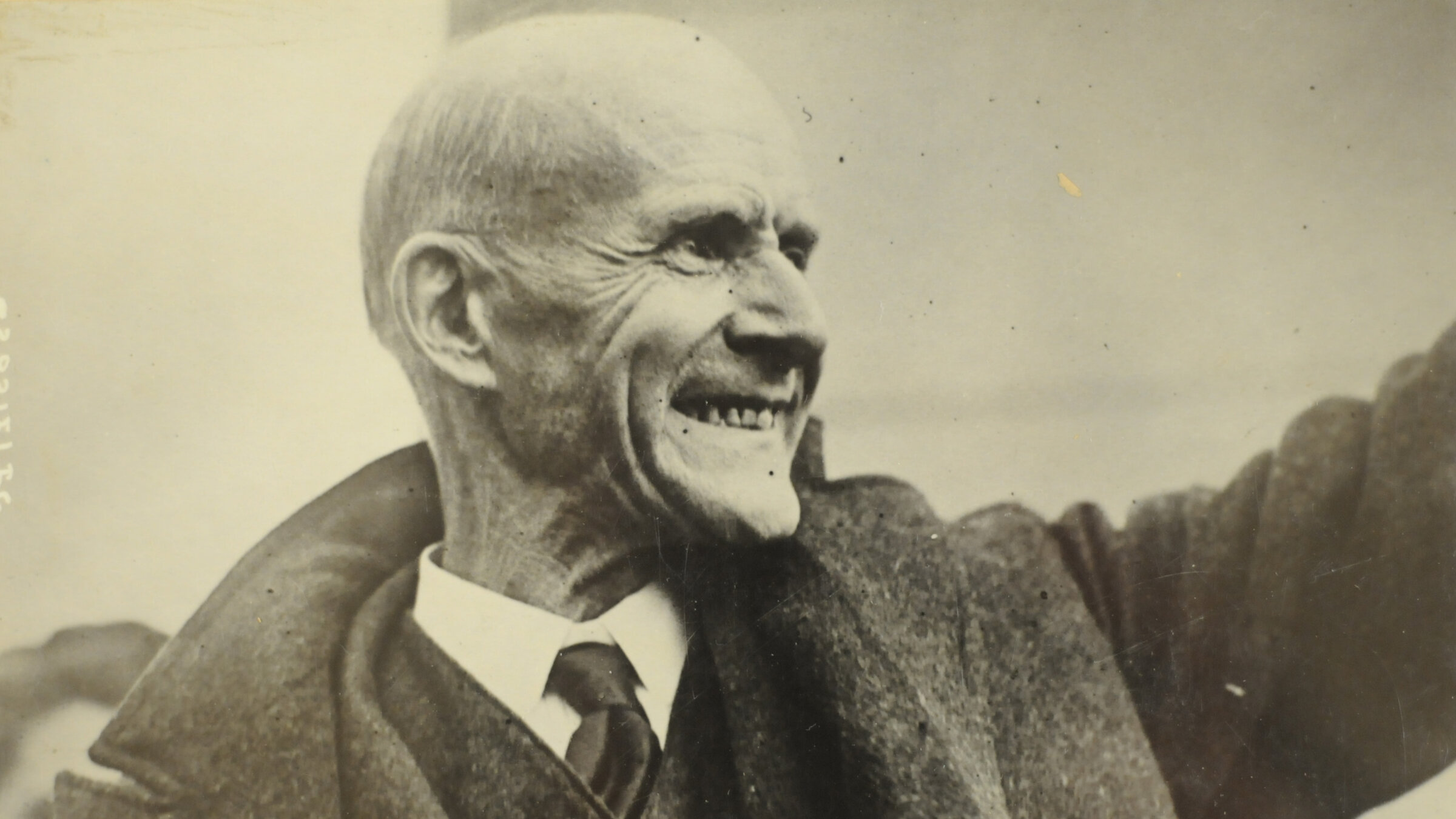Mamdani quoted Eugene Debs in his victory speech — there’s a long Jewish history there
The Forward’s early decades were devoted to socialism, and specifically support for Debs

Eugene Debs on his release from prison; his time in jail did not prevent him from undertaking a fifth presidential run — a run the Forverts supported. Photo by Getty Images
“The sun may have set over our city this evening,” Zohran Mamdani said from a stage at the Brooklyn Paramount Theater late Tuesday night. “But as Eugene Debs once said, ‘I can see the dawn of a better day for humanity.’”
This was the first sentence of the new mayor-elect’s victory speech, which gave pride of place to a candidate who ran for president — and lost five times — between 1900 and 1920 under the banner of the Socialist Party of America. And each one of those times, the Forverts backed him.
Debs was core to the early history of this paper, which was a staunchly socialist rag with strong union ties; Debs helped to found the American Railway Union and was a major socialist leader, elevating the ideology’s profile, for a time, to the relative mainstream in the U.S. Founding editor Ab Cahan, himself an avowed socialist, used the Forverts to elevate the leftist ideology among American Jews, urging readers to vote the socialist line every single time Debs ran. The now-defunct Yiddish radio station run by the Forverts, WEVD, took its call letters from the candidate’s name.
Debs was arrested after leading a railroad strike in 1895; though he had not gone to jail as a socialist believer, he came out devoted to the political ideology. And, soon thereafter, he founded the Social Democratic Party, which split from the preexisting Socialist Labor Party; democratic socialism, the philosophy with which Mamdani identifies, grew out of Debs’ party.
The Forward’s founding editor, Ab Cahan, immigrated to the U.S. in 1882 from Russia. After fleeing Czarist Russia, he had harsh critiques of American capitalism; barely a month after arriving, he attended a socialist meeting, and spoke at another only a month after that. Though meetings were often in Russian, Cahan advocated for using Yiddish within the socialist movement so that Jews of all education levels could participate. After Debs founded his new party, Cahan signed on and began to advocate for democratic socialism among American Jews.
In 1897, he founded the Forverts and shepherded a small, upstart paper into a titan that, for decades, was not only the largest Yiddish-language newspaper in the country, but also the socialist paper with the widest reach. Debs was core to that vision — and the Forverts was core to Debs’ success, and that of other Socialist Party candidates, using not only its pages but also its funds to support labor leaders and candidates. Meyer London, a socialist labor lawyer, won a seat in Congress in 1914; he appeared on a balcony of the newspaper’s building to thank his supporters.
And though Debs lost regularly, the Forverts celebrated his results — at their highest, about 6% of the popular vote — as a sign of socialism’s growing profile in the U.S..
“The 3 million citizens who have given their votes for the socialist candidate who sits behind iron bars because he fought courageously for his ideas and for the right of his ideas to be freely expressed — that powerful voice will echo in the ears of the capitalist reaction that so arrogantly raged across the country over these last years,” read one column.
Thanks in large part to Cahan’s support, Debs, though not Jewish, has remained beloved to Jewish progressives. Bernie Sanders even made a movie about the socialist leader in 1979. Now Sanders himself is the most famous democratic socialist in America, the heir to both Cahan and Debs. And their party seems to be making a comeback; Alexandria Ocasio-Cortez was buoyed to her seat by the Democratic Socialists of America. And Mamdani, quoting Debs with Sanders by his side, is hoping to share that mantle.
















